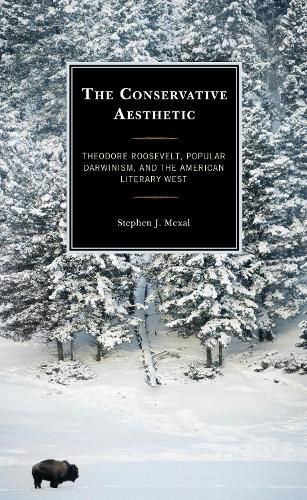Readings Newsletter
Become a Readings Member to make your shopping experience even easier.
Sign in or sign up for free!
You’re not far away from qualifying for FREE standard shipping within Australia
You’ve qualified for FREE standard shipping within Australia
The cart is loading…






The Conservative Aesthetic: Theodore Roosevelt, Popular Darwinism, and the American Literary West offers an alternative origin story for American conservatism, tracing it to a circle of writers, artists, and thinkers in the late nineteenth century who yoked popular understandings of Darwin to western literary aesthetics. That circle included writer Owen Wister, artist Frederic Remington, entertainer William Buffalo Bill Cody, historian Frederick Jackson Turner, and a young Theodore Roosevelt. The book explores how their lives and their writing intertwined with their conservative sensibilities. For them, going west was akin to time travel, a retrogression into an earlier and hardier age. It was through those retrogressions into the American state of nature, they imagined, that society could discover its finest and fittest citizens. Such a society would be the modern realization of Thomas Jefferson’s century-old dream of a natural aristocracy. Theirs was a new conservatism, rooted not in a history of European monarchy but rather in stories about American individualism and the frontier west, updated for the age of Darwin.
$9.00 standard shipping within Australia
FREE standard shipping within Australia for orders over $100.00
Express & International shipping calculated at checkout
The Conservative Aesthetic: Theodore Roosevelt, Popular Darwinism, and the American Literary West offers an alternative origin story for American conservatism, tracing it to a circle of writers, artists, and thinkers in the late nineteenth century who yoked popular understandings of Darwin to western literary aesthetics. That circle included writer Owen Wister, artist Frederic Remington, entertainer William Buffalo Bill Cody, historian Frederick Jackson Turner, and a young Theodore Roosevelt. The book explores how their lives and their writing intertwined with their conservative sensibilities. For them, going west was akin to time travel, a retrogression into an earlier and hardier age. It was through those retrogressions into the American state of nature, they imagined, that society could discover its finest and fittest citizens. Such a society would be the modern realization of Thomas Jefferson’s century-old dream of a natural aristocracy. Theirs was a new conservatism, rooted not in a history of European monarchy but rather in stories about American individualism and the frontier west, updated for the age of Darwin.